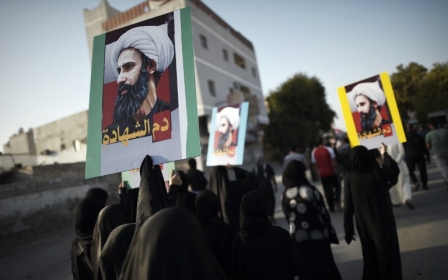Kuwait executions part of worrying trend: Rights group

Kuwait's decision to hang seven people - including a member of its royal family - is part of a worrying regional rise in the use of execution, Human Rights Watch said on Thursday.
"Kuwait's killing of seven people on January 25 highlights the alarming trend in the region for countries to return to or increasingly use the death penalty," said Sarah Leah Whitson, HRW's Middle East director.
The executions on Wednesday were the first in Kuwait since mid-2013, when five people were hanged in two months following an earlier moratorium of six years.
Those executed this week were two Kuwaitis and five foreigners - two Egyptian men, a Bangladeshi man, a woman from the Philippines and a woman from Ethiopia.
Six of those hanged on Wednesday were convicted of murder, including a member of the ruling family and a woman who burned dozens of people to death at a wedding party.
"Executing seven people in one day shows Kuwait is moving in exactly the wrong direction on the death penalty," Whitson said.
"The Kuwaiti government should be reinstating the moratorium on the death penalty instead of hanging seven people," she said.
HRW said use of the death penalty was on the rise across the Middle East.
Earlier this month, Bahrain ended a six-year de facto moratorium on the death penalty, executing three people.
Jordan in December 2014 executed 11 people for the first time in eight years.
Saudi Arabia and Iran consistently have some of the world's highest execution rates, HRW said.
Since the beginning of 2014, Saudi Arabia has executed more than 400 people, and human rights groups in Iran report the country may have executed as many as 437 last year alone.
Amnesty International also condemned the Kuwaiti executions as "shocking and deeply regrettable."
Stay informed with MEE's newsletters
Sign up to get the latest alerts, insights and analysis, starting with Turkey Unpacked
Middle East Eye delivers independent and unrivalled coverage and analysis of the Middle East, North Africa and beyond. To learn more about republishing this content and the associated fees, please fill out this form. More about MEE can be found here.




